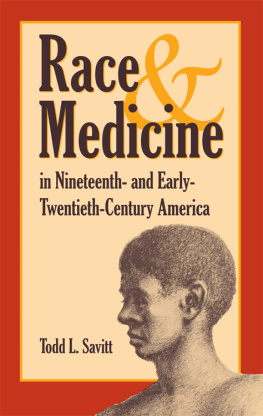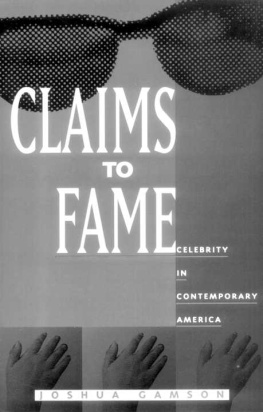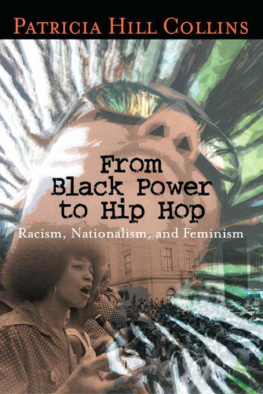Beyond Black
Celebrity and Race in Obamas America
Ellis Cashmore
BLOOMSBURY ACADEMIC
First published in 2012 by
Bloomsbury Academic
An imprint of Bloomsbury Publishing Plc
50 Bedford Square, London WC1B 3DP, UK
and
175 Fifth Avenue, New York, NY 10010, USA
Copyright Ellis Cashmore 2012
All rights reserved. No part of this publication may be reproduced, stored in a retrieval system, or transmitted by any means, electronic, mechanical, photocopying or otherwise, without the prior written permission of the publisher.
No responsibility for loss caused to any individual or organization acting on or refraining from action as a result of the material in this publication can be accepted by Bloomsbury Academic or the author.
CIP records for this book are available from the British Library and the Library of Congress
ISBN 978-1-78093-149-4 (paperback)
ISBN 978-1-78093-147-0 (ebook)
Visit www.bloomsburyacademic.com to find out more about our authors and their books. You will find extracts, authors interviews, author events and you can sign up for newsletters to be the first to hear about our latest releases and special offers.
Cover image: Startraks Photo/Rex features
Contents
1
Introduction I sell entertainment
However unwittingly, black celebrities have sold the idea that America is no longer manacled to its history. It is a history pockmarked by racism, segregation and victimization.
F or his 2011 concert tour, Snoop Dogg appeared on stage against a backdrop of dollar signs, as if to confirm the meaning, purpose and sole ambition of the appearance. His mic was adorned with a gold knuckle-duster, reaffirming his links with a past rooted in internecine violence, imploding ghettos and gang executions. And security guards added a tart, if theatrical, touch, frisking all concertgoers for weapons. The status of ballpoint pens was uncertain: recall how Joe Pesci used one such pen in Casino.
Snoops first album Doggystyle was released in 1993. Before then he had hung with the Los Angeles Crips, and done time for possession. He had murder charges hanging over him until 1996, when he was cleared. Calvin Broadus aka Snoop Doggy Dogg swept to fame with the rise of gangsta rap, a music that was at once dangerous yet fascinating. It was black music enthusiastically embraced by whites. Few musicians ever got rich purveying the authentically gloomy, grueling nature of life in the inner city. Snoop probably realized this early on in his musical career.
By the time of Doggumentary, his eleventh studio album, Snoop had shamelessly adopted the same approach as his peers and sometime gangstas, such as 50 Cent and Jay-Z an approach perhaps best summed-up by P. Diddy. I sell entertainment, he told Guy Adams, of the Independent newspaper (p. 19).
All black celebrities sell entertainment of one kind or other. Its fundamental. If someone fails to engage consumers in a way the consumers find agreeable and gratifying, then they are destined never to be a celebrity. They also sell a seemingly endless range of commodities connected in some way to entertainment. And they sell ideas. All celebrities, regardless of ethnic background, offer a conception of the good life; a narrow conception perhaps, but an influential one just the same. It is a good life in which endless novelty, change and excitement are taken for granted and in which all known stimulants are available. Ambitions are structured around the possibility of possessing things, the newer the better. Celebrities personify this good life.
But black celebrities secrete additional ideas: about racism, the colorblind life and the arrival of the postracial society. Occasionally, theyll speak explicitly about these matters. Very occasionally: for the most part, they remain silent, as if subdued by the overpowering demands of behaving with good grace so as not to incite controversy or resentment. Even a once-provocative figure like Snoop (2011 earnings: $8.55 million/5.5 million) is careful to make his ghetto posturing transparently that behavior intended to impress or mislead.
Most of us enjoy being entertained by musicians, actors, and sports stars. We might begrudge them the often staggering amounts of money they earn, but this doesnt stop us buying downloads, going to the movies or paying our tv subscriptions. Watching Denzel Washington in a film doesnt prompt us to think about how, today, there are many, many more African American movie stars in lead roles than there were twenty years ago. And it certainly doesnt make us wonder whether Washington is representative of a new generation of high-achieving African Americans.
In 1998, before Beyonc had gone solo, when Michael Jackson was still alive and the same year writer Toni Morrison hailed Bill Clinton as our first black president, historian Jacqueline Jones wrote: We find nothing incongruous in appreciating the talents of African-American entertainers and professional athletes (male and female), who are paid millions of dollars each year, while accepting the apparent fact that millions of black men, women, and children are doomed to languish in impoverished communities, without the educational credentials and work opportunities that provide access to the blessings of a high-tech society (p. 234).
Jones was right: we dont find incongruity. There is none: being entertained by black celebrities is perfectly in harmony with accepting what Jones called the apparent fact that the overwhelming majority of African Americans fail to make progress or achieve success of any substantial kind. The fact is actual rather than apparent, and it remains, as I will show in political celebrity (as I will soon argue in detail), seemed to validate if not the arrival, then the imminence of the postracial society.
Black celebrities are definitely creating an impression. But in what sense are we using impression? An effect, an imitation, an idea, feeling or opinion formed without conscious thought or with little evidence? This is one of the questions we might ask about black celebrities and, as the reader might already be anticipating, it leads logically to several related questions, all of which Ill address in the eleven chapters that follow. Before moving to them, Ill offer an outline.
_____
Earl Ofari Hutchinson discerned that Tiger Woods success in particular had been interpreted as final proof that America is a colorblind society, and discrimination mostly a figment of the warped imaginations of many African-Americans. Obamas political success presumably added to the weight of evidence. Its a powerful argument and one deserving closer attention.
In this second chapter, I namecheck many of the figures I will discuss in detail in subsequent chapters. Clearly Obamas impact has been considerable, as has that of the woman who endorsed, blessed and all but canonized him. Oprah Winfrey and Obama are among the many African Americans who have publicly reflected on their own prodigiously successful careers and, at times, on how they managed to navigate their ways to the top. They share with other conspicuous African Americans awareness of racism, but as an inconvenience rather than insurmountable obstacle. It is like rain. You know youre going to get wet so grab your umbrella and get up and go out to work. Robert L. Johnsons attitude is widely shared.
I use this chapter to establish themes that recur in one way or another throughout the book. Celebrities thrive in consumer culture; in fact, their existence is predicated on the desire to buy and possess products. Beyonc, more than any other celebrity, epitomizes this. She can, it seems, sell anything to anybody.
Barack Obama as a brand. His critics have done just this and intended it as an insult. Is it? A brand is typically a type of product designed, manufactured and distributed to consumers. But it also resonates among a population: it evokes images and emotions, usually of high quality. Can any politician today afford to dispense with the kind of brand-building processes associated with showbusiness entertainers?







